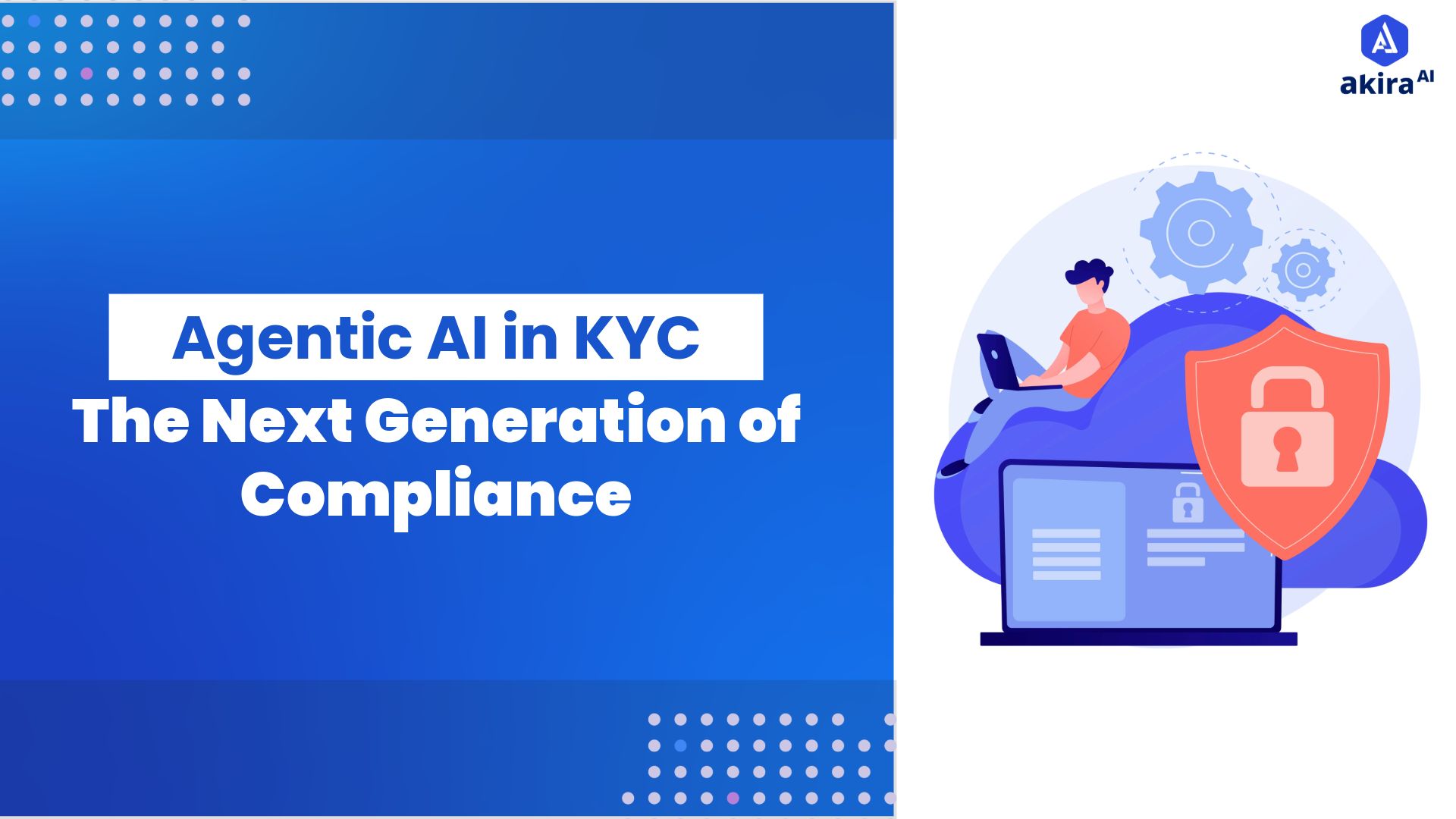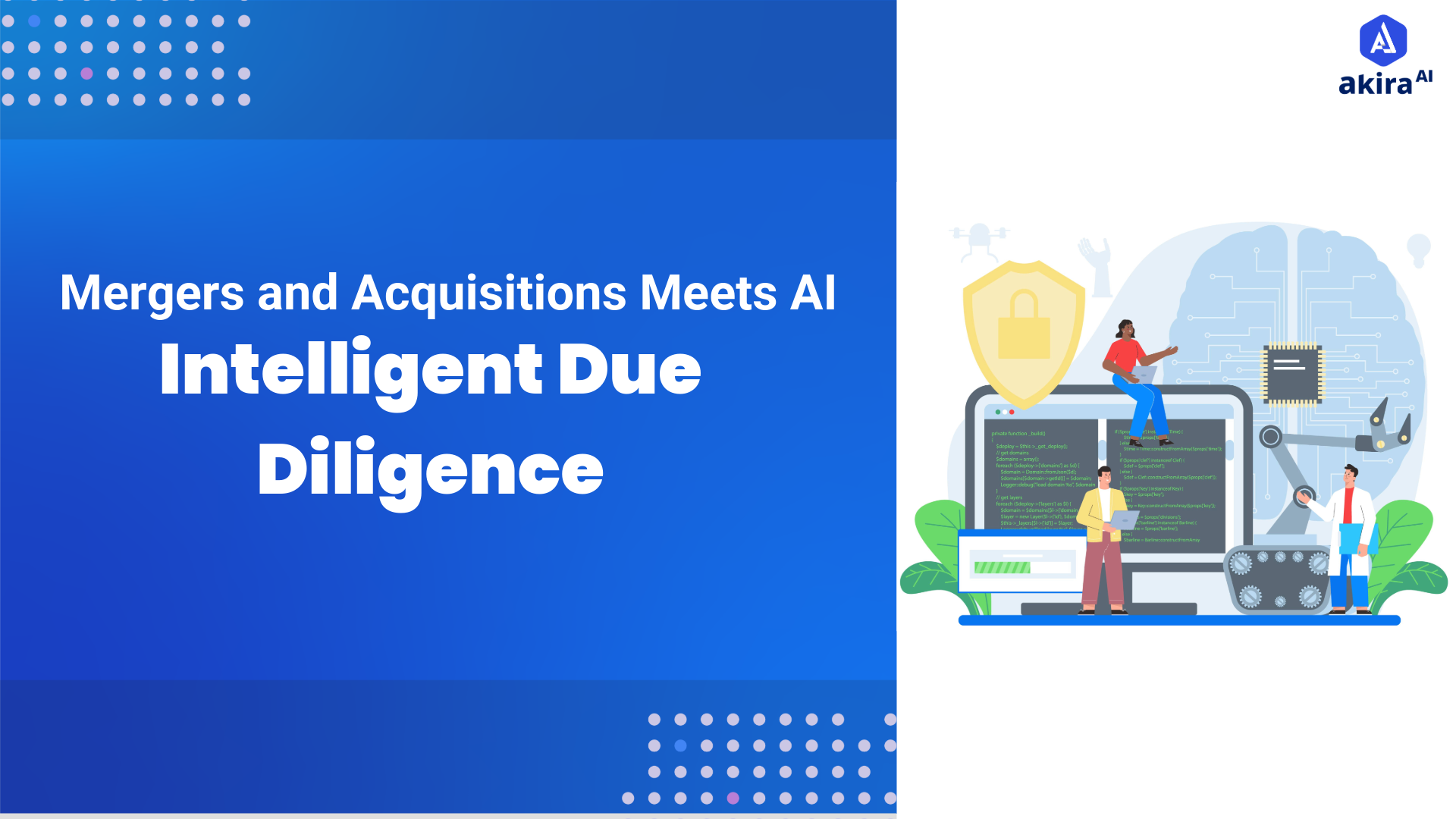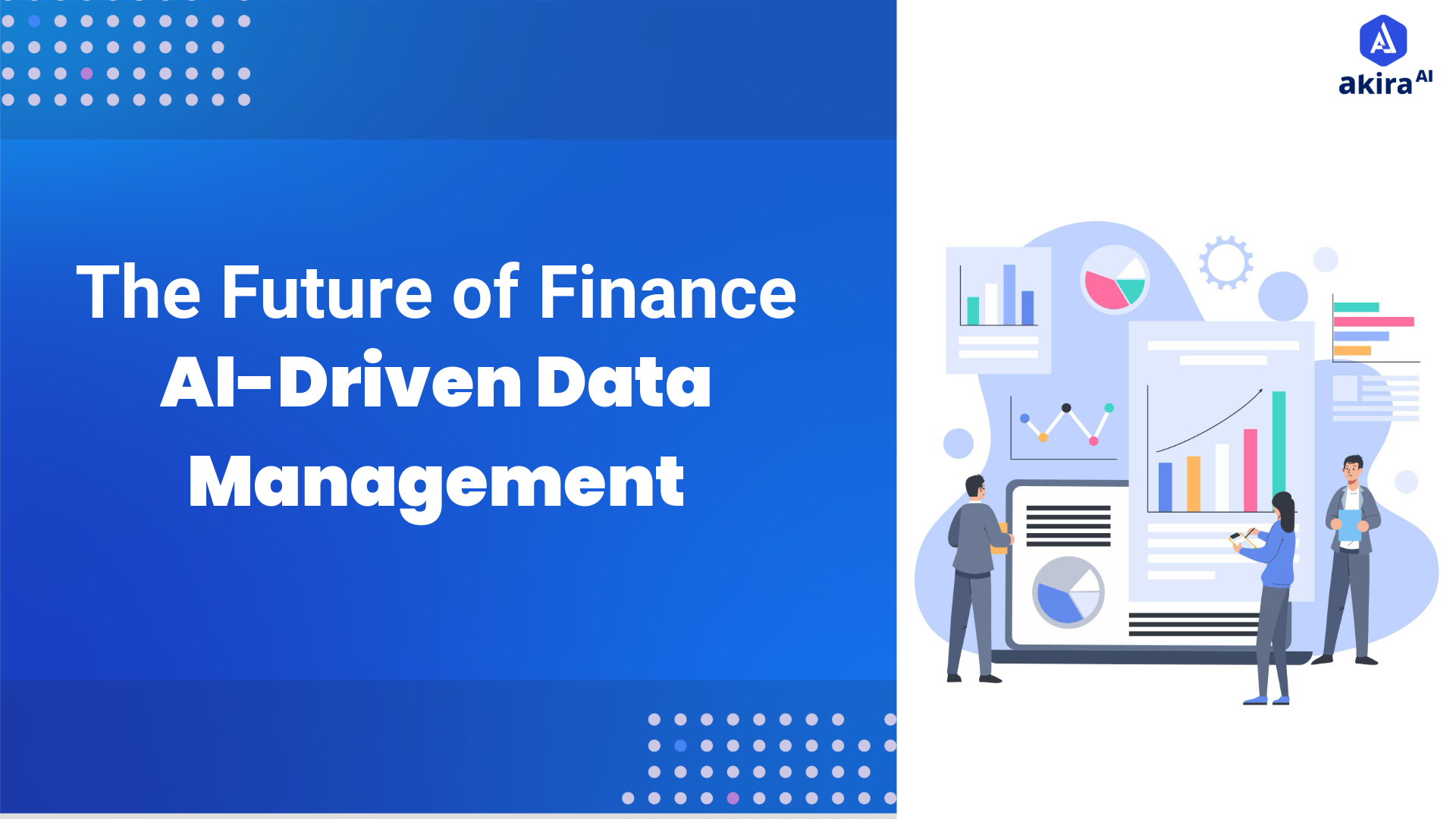How Are AI Agents Transforming Data Management in Finance?
In today's fast-paced financial environment, data lies at the heart of every decision. From market transactions and regulatory filings to customer activity and portfolio performance, the finance industry generates massive volumes of data every second. Managing and making sense of this data manually is not only time-consuming but also prone to errors—creating a critical need for smarter, faster solutions.
This is where AI agents for data management in finance step in. Powered by advanced technologies like machine learning, natural language processing, and predictive analytics, these autonomous systems are transforming how financial institutions collect, process, and act on data.
Through Agentic Analytics, these intelligent agents go beyond traditional data processing—they autonomously analyze patterns, make informed recommendations, and continuously adapt to deliver actionable insights that drive better business outcome.
- Traditional financial data management relies on manual, reactive, and rule-based systems
- AI agents introduce autonomous data collection, analysis, and decision support
- Agentic systems improve speed, accuracy, scalability, and compliance
- Financial institutions move from reporting on the past to predicting and acting on the future
Key Takeaways
-
Traditional financial data management is manual, reactive, and rule-based — it manages data but leaves decision logic fragmented, implicit, and difficult to audit.
-
AI agents introduce autonomous data collection, real-time analysis, predictive intelligence, and embedded compliance monitoring across financial data workflows.
-
Agentic systems improve speed, accuracy, scalability, and regulatory compliance — simultaneously and continuously.
-
Financial institutions move from reporting on the past to predicting and governing the future.
-
For CDOs and VPs of Data & Analytics: AI agents eliminate the manual reconstruction of decision context that slows credit, risk, and compliance workflows — directly reducing the operational overhead data teams absorb in high-stakes financial environments.
-
For Chief AI Officers and CAOs: Agentic systems provide the decision-aware infrastructure that AI models in finance require — governance controls, audit trails, and real-time adaptation that isolated rule engines cannot deliver.
What are AI agents for data management in finance?
AI agents for financial data management are autonomous systems that continuously collect, analyze, and act on financial data—using learning and prediction to support real-time, governed decision-making.
What Are AI Agents in Finance?
AI agents are intelligent software systems that perform specific tasks autonomously. In the context of financial data management, they:
What Are the Key Benefits of AI Agents for Financial Institutions?
| Business Impact |
Capability |
Outcome |
| Real-Time Decision Intelligence |
Continuous data analysis with predictive modeling |
Faster credit, risk, and market decisions with current context |
| Reduced Operational Cost |
Automation of data collection, cleansing, and reporting |
Analyst capacity redirected to strategic analysis |
| Enhanced Compliance |
Embedded, proactive regulatory monitoring |
Reduced compliance violations; faster audit documentation |
| Improved Data Accuracy |
ML-driven pattern recognition and anomaly detection |
Fewer errors in financial reporting and risk assessment |
| Scalability |
Agent capacity scales with data volume |
Data operations grow without proportional headcount increases |
| Customer Experience |
Personalized, real-time analytics driving product decisions |
More accurate credit assessment; faster, relevant customer responses |
Why should financial institutions adopt AI agents?
AI agents improve speed, accuracy, scalability, and compliance while reducing manual effort and operational cost.

How Do AI Agents Power Data Management in Finance?
Introducing AI agents means you need to understand fundamental concepts which enhance their efficiency in financial applications.
-
Automation: The AI agents use automation to manage recurring data tasks including information collection together with cleansing operations and document report production. The process becomes faster and more efficient which creates time availability for analysts to pursue high-level strategic work.
-
Machine Learning: These agents employ machine learning algorithms that continuously enhance their analytical capabilities as they analyze greater volumes of data. With time, the system becomes increasingly precise in recognizing patterns and making predictions.
-
Predictive Analytics: AI agents extract power from predictive analytics tools for future trend forecasting which allows financial institutions to choose actions before problems arise.
-
Natural Language Processing (NLP): AI agents extract meaningful data from unclassified sources including customer reviews and news content which provides complete understanding of data sets.
How do AI agents improve financial data accuracy over time?
They use machine learning and predictive analytics to continuously refine insights as new data is processed.
Why Do Traditional Financial Data Management Systems Fail?
The Core Problem
Traditional financial data systems are optimized for analysis after the fact — not decisions at the moment they matter. They aggregate transactions, calculate metrics, and generate reports. But they do not capture why a financial decision was made, who approved it, or under what constraints it should be reused.
Why Traditional Systems Cannot Scale
| Challenge |
Root Cause |
Business Impact |
| Data Overload |
Volume of financial data exceeds manual processing capacity |
Decisions made on incomplete or delayed information |
| Slow Decision-Making |
Manual data processing delays create lag in credit, risk, and compliance workflows |
Missed opportunities, regulatory exposure, competitive disadvantage |
| Limited Predictive Capability |
Systems are reactive — they show what happened, not what will happen |
Institutions respond to risk after impact, not before |
| High Operational Cost |
Large analyst and IT teams required for tasks that should be automated |
Inefficient resource allocation; cost scales linearly with data volume |
| Fragmented Decision Logic |
Decision authority, context, and precedent are implicit and untracked |
Audit reconstructions are manual, slow, and incomplete |
The Structural Gap
Static dashboards and manual reviews cannot govern decisions that are inherently dynamic. When edge cases arise — a credit exception, a fraud alert, a compliance judgment — analysts must reconstruct context manually, slowing response times and increasing operational risk. Historical reports cannot explain why an alert was ignored or whether a prior exception should apply. Without decision-aware infrastructure, AI models and rule engines operate in isolation.
How Do AI Agents Transform Financial Data Management?
The Agentic Architecture
AI agents in finance are intelligent software systems that perform specific tasks autonomously — continuously, at scale, and with embedded governance. They combine four technical capabilities:
- Automation — Manages recurring data tasks (collection, cleansing, report generation) without human intervention, freeing analysts for strategic work
- Machine Learning — Continuously refines analytical models as data volumes grow; pattern recognition and prediction accuracy improve over time
- Predictive Analytics — Forecasts future trends, enabling financial institutions to take action before risks materialize
- Natural Language Processing (NLP) — Extracts meaningful signals from unstructured sources (customer reviews, news, filings) for comprehensive context
Traditional vs. AI Agent–Driven Financial Data Management
| Dimension |
Traditional Systems |
AI Agent–Driven Systems |
| Data Processing |
Manual, batch-based |
Autonomous, real-time |
| Decision Speed |
Slow, analyst-dependent |
Continuous and adaptive |
| Insight Generation |
Historical reporting |
Predictive and forward-looking |
| Scalability |
Limited by human effort |
Scales with data volume |
| Accuracy |
Error-prone, static rules |
Improves over time via learning |
| Compliance |
Manual checks, after-the-fact |
Embedded, proactive monitoring |
| Customer Impact |
Generic, delayed responses |
Personalized, real-time actions |
Practical Example: Credit Risk Decision
Traditional system:
- Credit score generated from historical data
- Manual review required for edge cases
- Decision delayed and often based on outdated context
AI agent–driven system:
- Risk profile updated continuously as new data arrives
- Anomalies and early warning signals detected in real time
- Actions recommended or triggered with embedded governance controls and full audit trail
What Emerging Technologies Power AI Agents in Finance?
Some AI-based platforms are leading the way in changing the way data is managed in finance. Some of the top ones are:
-
DataRobot Automated Intelligence: DataRobot automates the creation, deployment, and maintenance of machine learning models, allowing financial institutions to gain more insight from their data with less effort.
Why Do AI Agents Outperform Legacy and Rule-Based Systems?
AI agents are unique from other agents in that they don't just react to information—they learn. Traditional data handling systems might report on historical data, but AI agents truly utilize machine learning to identify trends and predict the future. That means that AI agents can get better incrementally through experience as they handle more data.
Whereas traditional systems rely on pre-existing knowledge, AI agents learn and react to new entities in real time, providing more immediate, accurate, and fitting responses. That learning and adaptability make AI agents better than they were before.
What makes AI agents superior to rule-based systems?
AI agents learn, adapt, and improve continuously instead of relying on fixed rules.
How Do AI Agents Analyze Financial Data Across the Full Data Lifecycle?
AI agents provide a comprehensive solution capable of operating across every phase of the financial data lifecycle:
-
Data Collection Agents automate ingestion from trading systems, CRMs, regulatory databases, and streaming sources — ensuring institutions have continuous access to current information without manual extraction.
-
Data Analysis Agents analyze collected data in real time — identifying trends, detecting anomalies, and surfacing insights at a speed and scale impossible with manual analytical workflows.
-
Predictive Analytics Using machine learning, agents forecast future trends in market behavior, customer credit risk, and operational performance — enabling proactive decisions rather than reactive responses.
-
Decision Support Agents act as governed decision support infrastructure — generating recommendations with embedded authority controls, precedent tracking, and audit trails that isolated AI models cannot provide.

How Should CDOs and Analytics Leaders Measure AI Agent Performance in Finance?
Financial services represents the highest-stakes environment for agentic AI deployment. Standard analytics KPIs — report turnaround time, dashboard refresh rate, data pipeline uptime — measure infrastructure health but not the autonomous decision quality, compliance enforcement accuracy, or adaptive learning velocity that define agent performance.
Why Standard Financial Analytics KPIs Are Insufficient?
In financial services, an agent making a wrong credit decision, missing a fraud signal, or generating a non-compliant audit trail has direct regulatory and revenue consequences. Measurement frameworks must capture decision accuracy, governance defensibility, and business impact — not just throughput.
Four-Dimension KPI Framework for Financial AI Agent Performance
| Dimension |
Key Metrics |
What It Measures |
| Decision Quality |
Credit decision accuracy rate, false positive/negative rate on fraud detection, risk model alignment score |
Are agents making financially sound, business-aligned decisions? |
| Compliance & Auditability |
Audit trail completeness rate, regulatory report generation time, policy violation detection rate |
Are agent decisions defensible to regulators (Basel III, GDPR, AML)? |
| Predictive Accuracy |
Forecast accuracy vs. actual outcomes, risk signal lead time, anomaly detection precision |
Are agents identifying future risks before they materialize? |
| Operational Impact |
Manual analyst hours eliminated, decision cycle time reduction, cost per data operation |
Are agents delivering measurable efficiency and cost outcomes? |
Portfolio-Level Metrics for CDOs and VPs of Data & Analytics in Financial Services
- Autonomous resolution rate — Percentage of data quality issues, compliance alerts, and routine decisions resolved by agents without analyst escalation
- Decision audit completeness — Percentage of AI-driven financial decisions with full context, authority, and precedent logged — critical for regulatory examination
- Agent learning velocity — Is prediction accuracy improving quarter-over-quarter as agents process more financial data?
- Regulatory response time — Time from regulatory inquiry to audit-ready documentation delivery — should decline as agent governance infrastructure matures
For Chief AI Officers in Financial Services: Compliance and auditability are non-negotiable constraints, not optional governance layers. Every agent decision affecting credit, risk, or regulatory reporting must be logged, explainable, and traceable to a specific business rule or learned model output. Build audit trail requirements and explainability controls into agent deployment from day one — retrofitting governance in regulated financial environments is significantly more costly and carries regulatory risk.
Conclusion: AI Agents Are Becoming the Operational Core of Financial Data Infrastructure
AI agents for data management in finance represent a fundamental shift in how financial institutions handle, analyze, govern, and act on data. As data volumes grow and decision timelines compress, traditional manual and rule-based systems are no longer sufficient — not because they cannot process data, but because they cannot govern decisions with the context, speed, and auditability that modern financial operations and regulators require.
For CDOs, CAOs, VPs of Data & Analytics, and Chief AI Officers in financial services, the strategic implication is direct: AI agents that autonomously collect, cleanse, analyze, and interpret financial data in real time — with embedded governance controls and full audit trails — are the infrastructure that makes enterprise AI in finance defensible, scalable, and compliant.
Financial institutions that deploy governed agentic systems today build the decision-aware data foundation that positions them to lead in accuracy, compliance, and customer responsiveness. Those that delay continue absorbing the compounding cost of manual decision reconstruction at scale — in analyst time, regulatory risk, and competitive lag.






